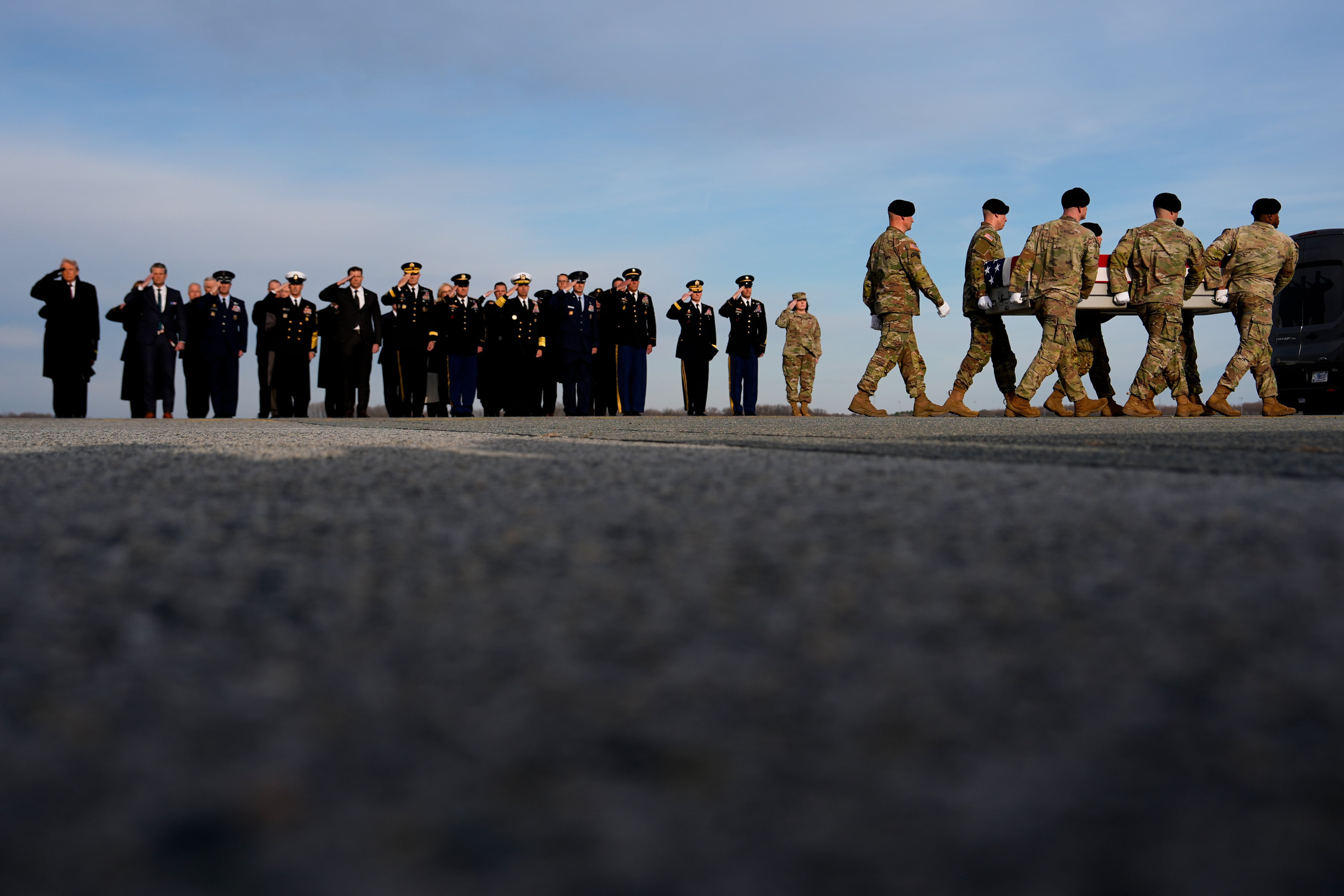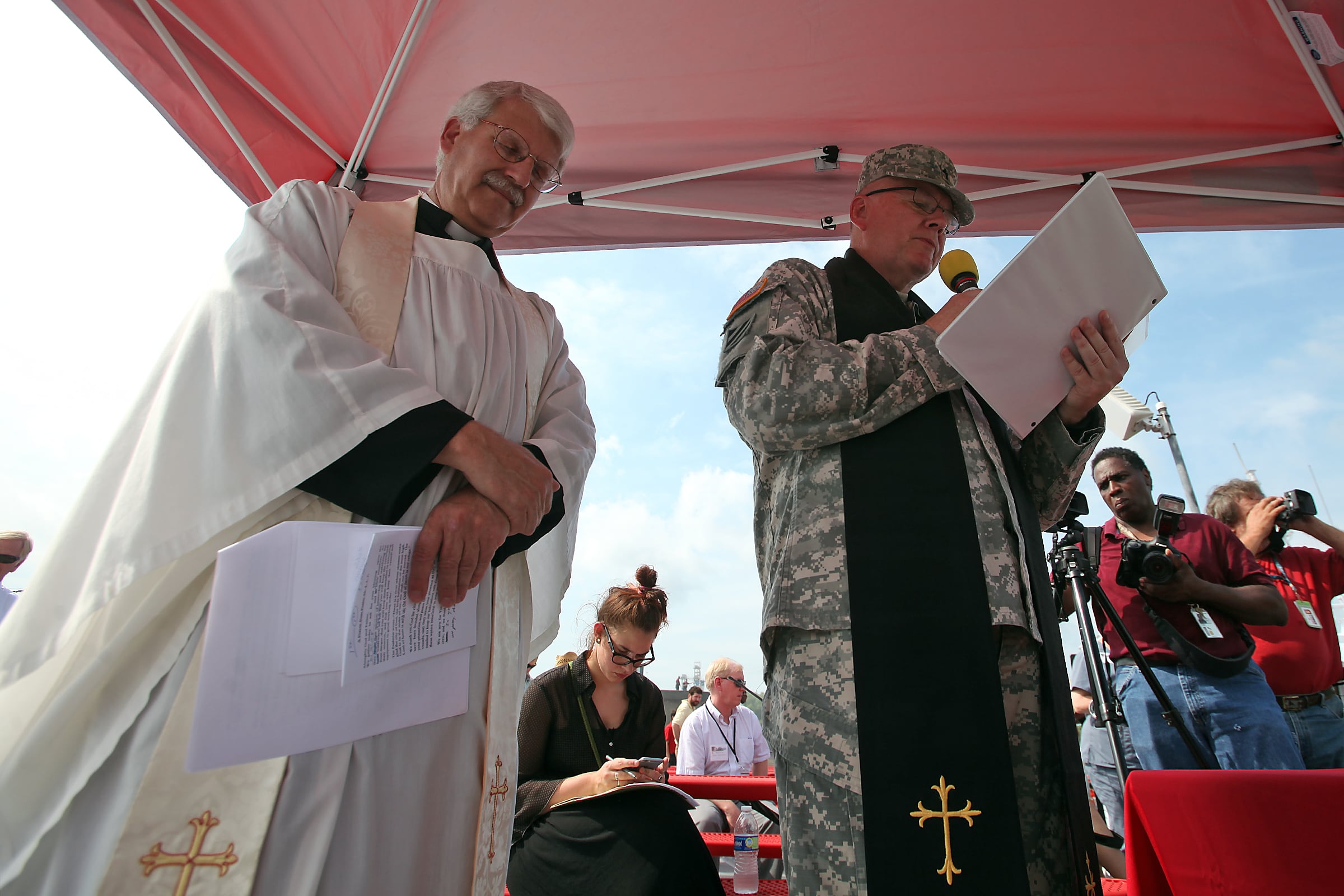When Army Under Secretary Patrick Murphy took office in January 2016, he already knew that as a presidential appointee, he would probably only have just over a year in office to get some things done.
The 82nd Airborne Division veteran and former Pennsylvania congressman wanted to help transitioning soldiers, create more private partnerships between the Army and civilian organizations, and do a better job of telling the Army's story, he said in a Thursday interview from his packed-up office at the Pentagon.
"I gave every ounce of energy I could over this past year, so I have no regrets," Murphy said. "I am hopeful that what we accomplished this year will continue, and that momentum will continue."
Murphy, whose job doubled as the Army's chief management officer, made it a point to get spending under control.
Last year, he said, the Army was able to save $340 million in unemployment checks paid to recently separated soldiers by bolstering the Soldier for Life program, which starts soldiers on a transition plan a year ahead of their discharge.
He also encouraged the department to get on social media, to do a better job of documenting what goes on the Army in an effort to get high school kids interested in service.
"Ninety percent of teenagers, the folks that we're recruiting, get their news from social media, and that's where we need to be," he said.
He even managed to convince the sergeant major of the Army to get on Twitter, he said.
Murphy was also able to make a difference with individual soldiers, from PTing with units around the world to showing up for soldiers and families in need.
On his first day as acting Army secretary, a job he held for several months before Army Secretary Eric Fanning was confirmed in May 2016, Murphy met the casket of Sgt. 1st Class Matthew McClintock, a Green Beret killed in action in Afghanistan, along with the soldier's wife and young son at Dover Air Force Base, Delaware.
"It was a pretty powerful experience. And I tried to keep that in the back of my mind," he said. "That’s what we’re here to do – to fight and win the nation’s wars and to do everything we can to support our nation’s war fighters and their families."
The importance of his social media presence also came through, he said, when a soldier at Fort Hood, Texas, sent him a tweet about contemplating suicide. Murphy was able to get in contact with the 1st Cavalry Division commander's wife and his chain of command.
"They found that soldier before he did something permanent," he said. "Being responsive like that is critically important."
What comes next
For his part, Murphy said, he's due back home in Pennsylvania to coach his son's hockey team on Saturday morning.
"I’m doing the inaugural events to show that we have a peaceful transition of power, but after the events tomorrow night, I’ll be driving home to Pennsylvania so I can coach," he said. "Next week, I’ll figure out the next steps."
He has a speaking engagement at West Point on Wednesday, he said, and plans to go up against Sergeant Major of the Army Dan Dailey in a Spartan Race later this year.
The Department of the Army will be left in the hands of Robert Speer, the Army's comptroller, filling the role of acting secretary.
President Trump's nominee for Army secretary, West Point graduate and billionaire businessman Vincent Viola, is due for a confirmation hearing on Feb. 9, Murphy said. Viola has been a friend for a decade, he said, and they had dinner in D.C. recently.
"Vinny is the embodiment of Soldier for Life. Even though he did five years, he will hit the ground running because he’s been involved since he left," Murphy said, including his work standing up the Combating Counter Terrorism Centerat his alma mater.
"I think it’ll be transparent to every soldier and family member his love for them and what he wants to bring to the table," he added.
The Army will be in good hands, he said, but he wishes he didn't have to sit out budget negotiations.
"I would like to be here to fight for the Army going into this budget season," he said. "I thought we had a pretty good year, this past year."
The Army's budget shrunk by a third between the time Murphy left Congress in 2011 and when he took office in 2015, he said, and he cautioned against trying to run the service on a shoestring.
"There’s rumors that there could be a supplemental [appropriations bill], but time will tell," he said. "But hopefully the folks in Washington understand that they can’t go back to sequestration. That was very painful for our Army, and hopefully they learn from their mistakes."
Meghann Myers is the Pentagon bureau chief at Military Times. She covers operations, policy, personnel, leadership and other issues affecting service members.





